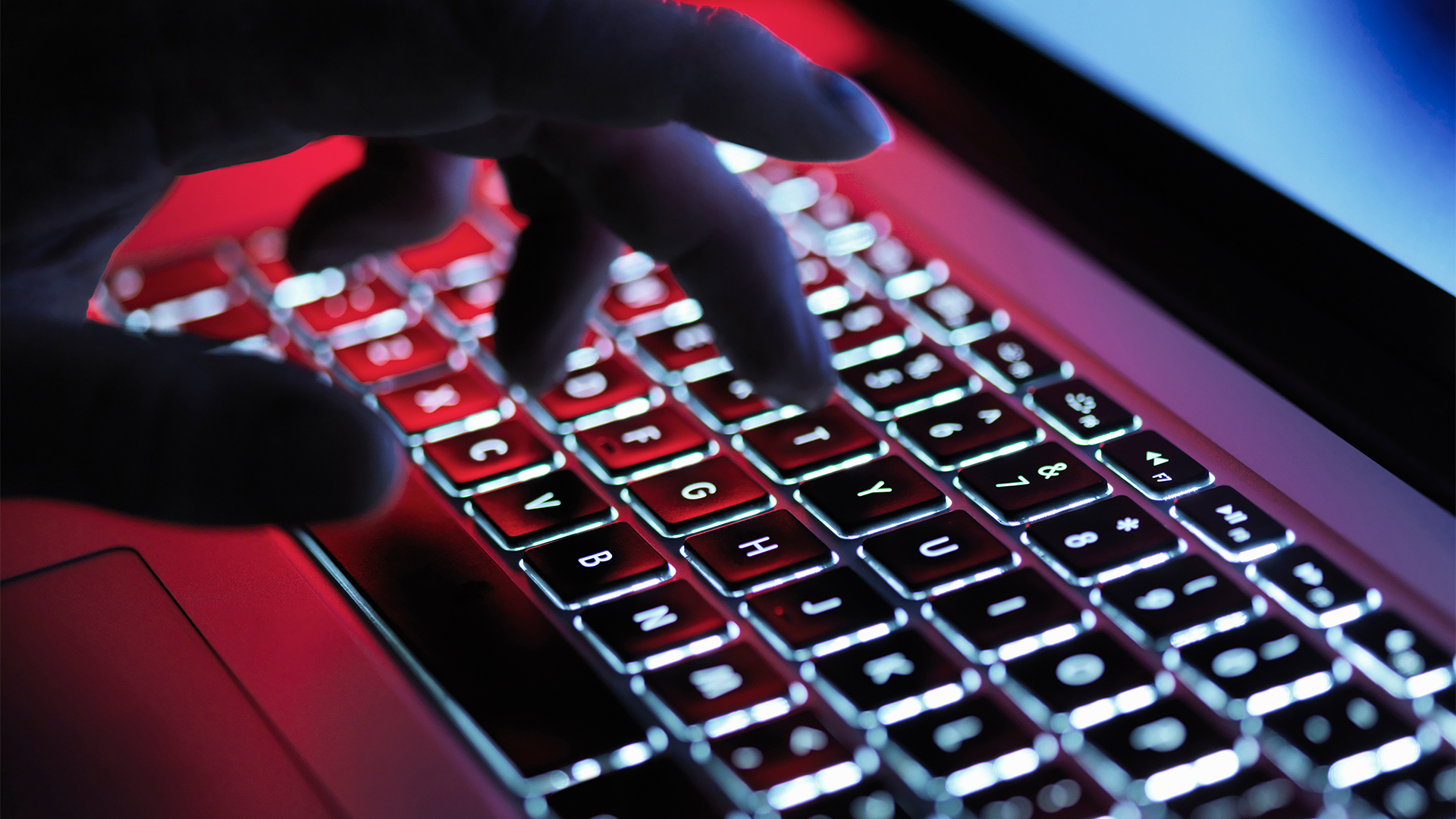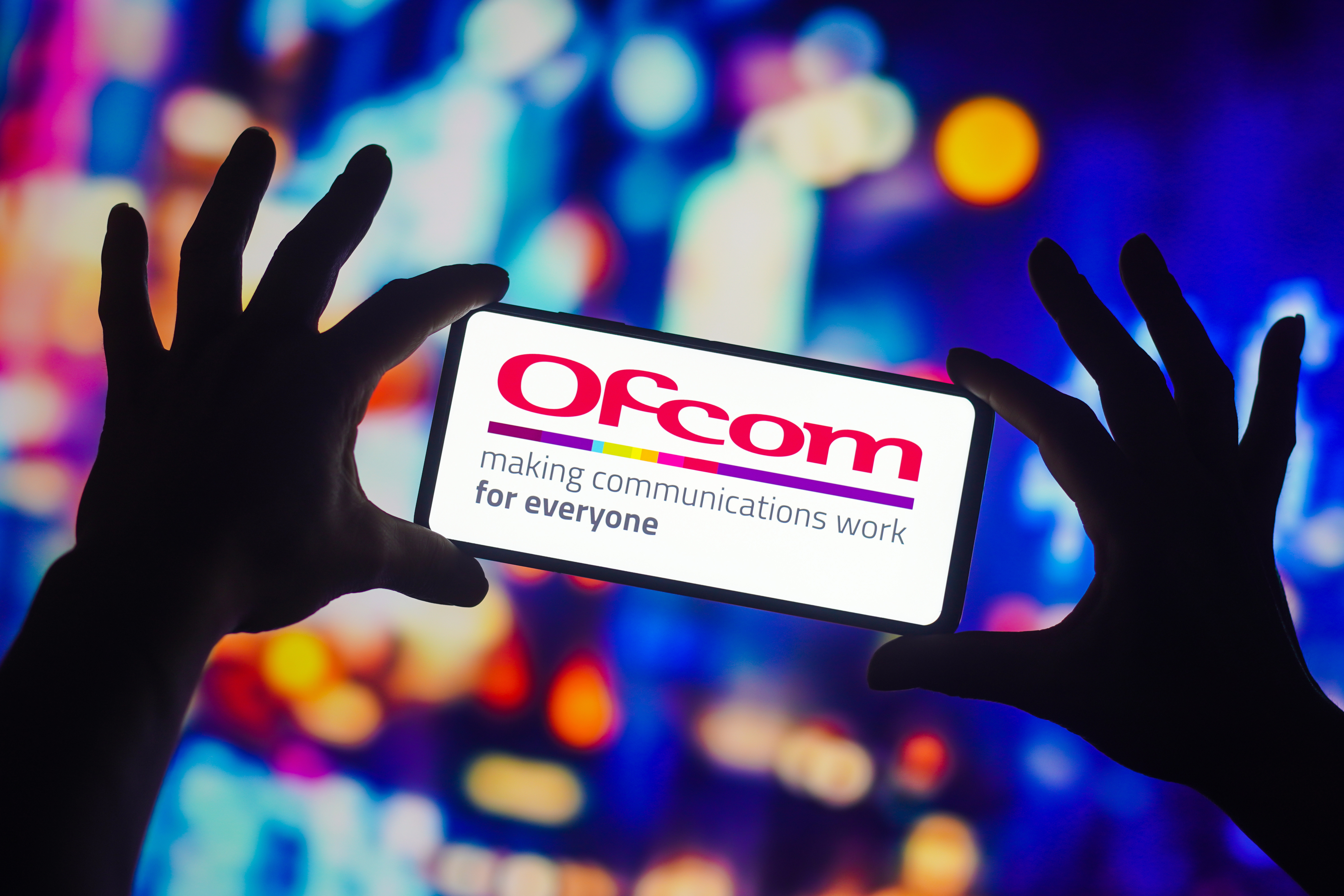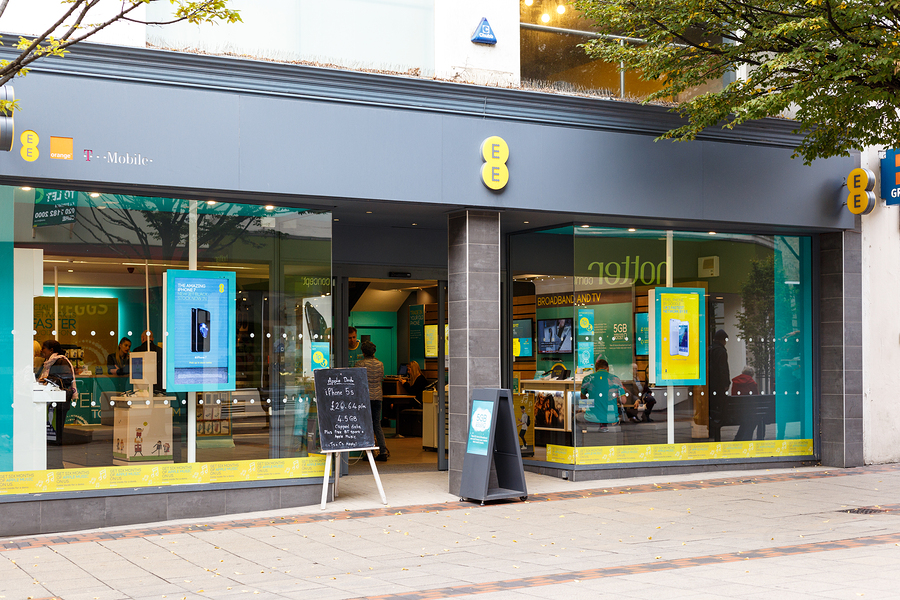Windows XP, Ofcom fees and Touch ID: IT Pro's web comments round-up
Windows XP's demise, Ofcom fees and Touch ID have all got IT Pro readers talking this week.

Sign up today and you will receive a free copy of our Future Focus 2025 report - the leading guidance on AI, cybersecurity and other IT challenges as per 700+ senior executives
You are now subscribed
Your newsletter sign-up was successful
It's that time of the week again where we take a look at some of the news stories, features and product reviews that have got IT Pro readers hot under the collar this week.
Some of the most popular topics of online conversation this week have centred on Windows XP's looming end of support deadline, Ofcom's proposed mobile licence spectrum fee hike and the pros and cons of using speech recognition software in a healthcare setting.
And, of course, no weekly web comments round-up is complete without someone kicking off about something to do with Apple, is it?
Full support for XP
This week marked the start of the six month countdown until Microsoft finally pulls the plug on extended support for Windows XP, a thirteen year old operating system that is still used on more than 30 per cent of the world's PCs.
Microsoft has been bigging up the benefits of giving XP the slip for several years now.
But, despite Microsoft's best attempts to convince Windows XP users that there are better, faster, newer and more secure versions of the operation system out there, the message seems to be falling on deaf ears.
Sign up today and you will receive a free copy of our Future Focus 2025 report - the leading guidance on AI, cybersecurity and other IT challenges as per 700+ senior executives
I don't get attacked by Trojans or malware and at least I know my way around...I wish people would stop being taken in by the hype.
Diehard Windows XP fan James B said he has Windows 7, but keeps an XP machine around for nostalgia purposes.
"I found a lot of the old games I still like to play will not work on Windows 7, so I keep Windows XP," he explained.
Autoq said he would upgrade to Windows 7,8 or even Vista if it wasn't so gosh darn expensive.
"If Microsoft give me a license for Windows 7 Professional (or Windows 8) to match my Win XP Professional license for say $10, I'd upgrade," offered Autoq. At that price, I reckon Apple CEO Tim Cook might even consider a move over to Windows as well...
Meanwhile, Mr. Stressed, another happy XP user, called for people to stop paying attention to Microsoft hype about the OS no longer being fit for purpose.
"I don't get attacked by Trojans or malware and at least I know my way around and can actually use the machine, which is what it was built for," he fumed.
"I wish people would stop being taken in by the hype. Sure, if you enjoy tinkering with new operating systems then fine, go ahead, but many of us just want to use the machine."
Ofcom's mobile spectrum price hikes
Ofcom set out plans this week to increase the annual fees mobile operators must pay to run services using the 900 MHz and 1800 MHz spectrum bands, much to the disgust of many.
These bands are used by the operator community to carry voice calls, as well as run 3G and 4G services, and Ofcom wants Three, EE, O2 and Vodafone to cough up an extra 245 million a year to use them.
It is feared the move could ultimately result in customers having to pay more to use mobile services, while Ofcom pleads a price hike is necessary because spectrum space is a finite resource and needs to be used as efficiently as possible.
Unfortunately, IT Pro readers weren't buying that, with some already kicking off at the prospect of having to pay the mobile operator community more for services (they claim) often cut out.
Regular IT Pro commenter Brianm101 was among those opposed to the plan. "I think Ofcom's statement would be better worded as, We need more money and the spectrum is a finite resource so we can charge what we like," he scornfully added.
Healthcare talk
Speech technology vendor Nuance held an event in London this week looking at how the use of its dictation software could help speed up treatment and diagnosis times within the NHS.
Several healthcare professionals shared their experiences of using the firm's tools at the event. For instance, one claimed the software has freed medical secretaries from the onerous task of transcribing doctors' letters, and made it easier for medical staff to keep contemporaneous appointment notes, as per the General Medical Council's guidelines.
Although speech recognition has improved dramatically over the last few years, I can see multitudes of problems with this approach.
IT Pro reader Derek Knight sounds like he'll need some more convincing about whether speech recognition technology should become a common feature in GP surgeries.
"Although speech recognition has improved dramatically over the last few years, I can see multitudes of problems with this approach, not least: when you can barely understand what the doctor is saying, because he or she speaks with a strong accent," remarked Knight.
"At least a human has a vague chance of working out the gist of it from facial expressions and the situation. I really see a lot more mistakes from this sort of use of technology."
James Kippenberger, however, was far more supportive, explaining tools that allow doctors to cut down on the amount of admin they do and prioritise patient care are a good thing.
"The process of creating, disseminating, checking and signing discharge summaries and clinical letters can be timely and often prevents valuable patient-facing time," he explained.
"Some hospitals are forced to function without administrative support and there are still high numbers of clinical staff producing handwritten notes all of which eventually need typing.
Of course, it's quicker to talk than to type and with doctors under increasing pressure to spend more time with patients, undoubtedly technology that can improve the efficiency and productivity of care, can only benefit," he added.
Mugged off by TouchID
And finally, the inclusion of the Touch ID biometric fingerprint scanner on the iPhone 5s has sparked someseriously fanciful thoughts from readers in recent weeks.
This time around the comments have mainly focused on the lengths muggers might go to pinch an iPhone 5s with Touch ID activated off its owner.
Long-time IT Pro commenter Phila suggested iPhone 5s owners could find themselves losing more than their devices, if muggers have their way.
There are gangs which get around the finger print scanners on bigger devices with a very simple method: they take the fingers from the owner.
"There are gangs which get around the fingerprint scanners on bigger devices with a very simple method: they take the fingers from the owner," he warned.
"Would a gang, who are stealing a device worth 700+, think twice about removing a thumb from someone they're stealing from? I very much doubt it."
Even so JLewis said he doesn't believe a thief would go to the trouble of cutting off a person's thumb for the sake of an iPhone, especially as there are no guarantees it's the digit they use to unlock the device.
"Do you really think it to be likely for a common thief to hack a finger off of someone not knowing if it's the correct finger," he asked.
In short, yes, Phila does. "Having been mugged in the past, at knife point, [muggers] have zero compunction in causing physical harm while taking items and money," he explained.
"It was only my compliance that meant that I wasn't injured, but I know people who have been harmed during muggings. So, would someone remove a finger for a 700 device? Yup, I'm sure they wouldn't have any second thoughts about it."
-
 New Ofcom guidelines show it’s getting tougher on big tech
New Ofcom guidelines show it’s getting tougher on big techNews New Ofcom guidance outlining its plans for the Online Safety Act show the regulator is toughening up on big tech.
-
 Ofcom’s draft guidelines on illegal online content set stringent rules for big tech
Ofcom’s draft guidelines on illegal online content set stringent rules for big techNews The codes of practice gives an insight into what the Online Safety Act will mean in practice
-
 UK gov urged to ease "tremendous" and 'unfair' costs placed on mobile network operators
UK gov urged to ease "tremendous" and 'unfair' costs placed on mobile network operatorsNews Annual licence fees, Huawei removal costs, and social media network usage were all highlighted as detrimental to telco success
-
 UK regulator to investigate Amazon, Microsoft, Google cloud services competition
UK regulator to investigate Amazon, Microsoft, Google cloud services competitionNews The regulator is hoping to publish a final report, including its concerns or proposed recommendations, within 12 months
-
 We're addicted to our phones, according to Ofcom
We're addicted to our phones, according to OfcomNews Although always being connected means flexible working, some think it's having a negative impact on relationships
-
 Ofcom reveals automatic compensation for ripped-off broadband customers
Ofcom reveals automatic compensation for ripped-off broadband customersNews £142 million will be automatically paid out to customers receiving a delayed service
-
 Three fined £1.9m for 999 call flaw
Three fined £1.9m for 999 call flawNews Ofcom investigation reveals emergency calls were routed through a single data centre
-
 Ofcom fines EE £2.7m for overcharging 40,000 customers
Ofcom fines EE £2.7m for overcharging 40,000 customersNews Customers dialling 150 number abroad were overcharged £245,700

